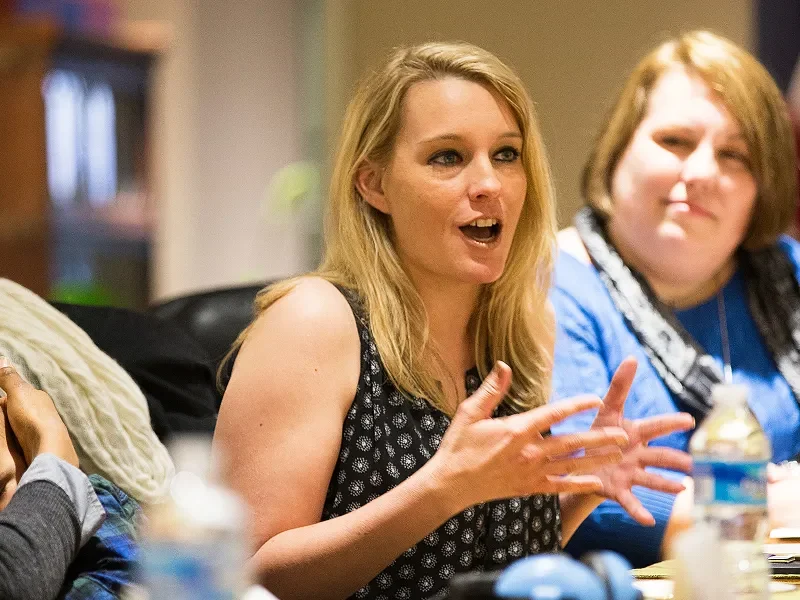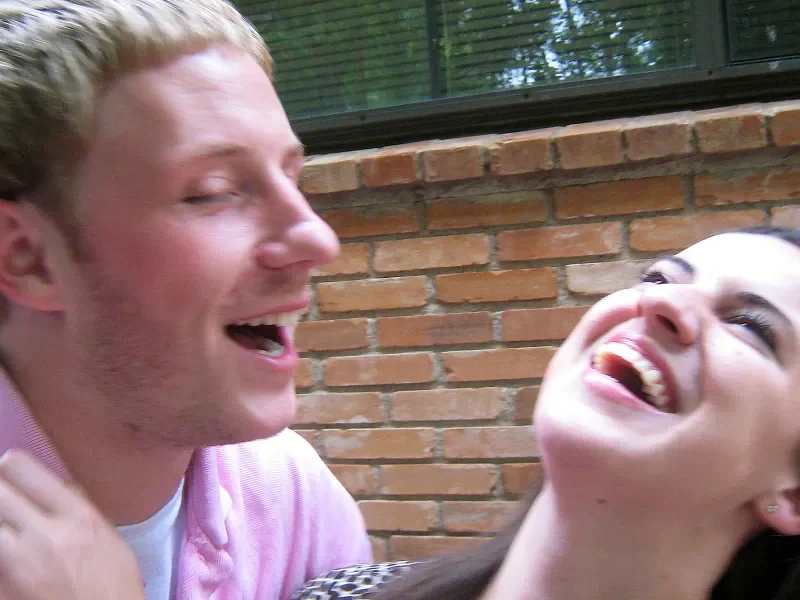When I left home to care for my dying mother, I thought my husband would hold things together until I came back. Instead, I walked into a nightmare I never imagined.
I never pictured myself writing something like this, but here I am. My name is Stella, I’m 25, and I’ve been married to my husband, Evan, who’s 27, for two years now. We’ve been together for five years. Evan and I married young, but at the time, it felt right.
We were both working good jobs, stable enough to afford a small townhouse in the suburbs, and we were excited about building a future together.
We’d even started trying for a baby. I remember sitting at the kitchen table one evening with my planner open, jotting down possible timelines, smiling as Evan leaned across the table and said, half-joking but half-serious, “We’ll have the cutest kid on the block.”
I laughed and tossed a grape at him. It was lighthearted, hopeful, and it felt like our lives were finally about to begin.
But all of that came crashing down with one phone call.
My mom — my best friend and my anchor in this world — was diagnosed with stage four cancer. The doctors gave her six months.
Six months.
I remember sitting on the couch, my phone still in my hand, shaking so hard I could barely breathe. Evan sat down next to me immediately, his arm around my shoulders.
“Stel,” he said softly, “you have to go. She needs you.”
I broke down against him, crying into his shirt. “I can’t leave you,” I whispered. “What about us? What about—”
“We’ll figure it out,” he interrupted, stroking my hair. “Go be with her. Don’t worry about me.”
So I did. I packed a bag and moved back into my childhood home, three hours away, to take care of her. My dad has been gone for years, and I’m her only child. There was no one else.
Those months were brutal. I drove her to every treatment, sat through every chemotherapy session holding her hand, listened as she cried at night when the pain was too much, and forced myself to smile every morning just so she could see that I was strong enough to carry us both.
Sometimes she’d look at me and whisper, “You should go home, Stella. You’re too young to spend your days in hospitals.”
And I’d shake my head every time. “Don’t even start, Mom. I’m not leaving you.”
Evan checked in often. We spoke on the phone every other day. He always sounded supportive, telling me he missed me, that he was “managing the house” and “keeping busy.” His voice carried this tired edge, like he was under stress. I thought it was just the distance, the strain of us being apart.
“Promise me you’re eating?” I’d ask during our calls.
He’d chuckle. “Yeah, yeah, don’t worry. I’m not surviving on just cereal. I’ve even learned to cook a little.”
I’d smile to myself, grateful that he was managing and he understood how important this was. Still, he never visited me or my mom. Not once. Whenever I asked, he always had an excuse — work deadlines, short-staffed shifts, or “I don’t want to take away from your time with her.” I wanted to believe him, so I did.
Six weeks ago, my mom passed away.
I don’t think anything prepares you for that moment. I buried her, packed away her clothes while sobbing into them, and sat in her empty room just breathing in what was left of her scent.
Those weeks felt like walking through a dark tunnel with no end in sight. And through it all, Evan stayed in touch, telling me he was grieving in his own way, keeping the house running so I wouldn’t come home to chaos.
Finally, after I wrapped up her estate and closed up the house, I drove back. I thought stepping into our place would feel like relief. I imagined leaning against Evan, crying into his chest, and finally letting someone else hold me up after months of carrying everything alone.
Instead, the second I opened the door, I froze.
The smell hit me first. It was sour, like stale beer and sweat mixed with grease. My stomach turned as I stepped inside. The living room was a wreck; pizza boxes stacked on the coffee table, dirty cups everywhere, dust thick enough on the TV stand to write in, and a dark stain on the rug I had picked out with such care last year.
“Evan?” I called, my voice cracking.
I opened my mouth to speak, but then I noticed something that made my stomach drop. He wasn’t alone.
I stepped into the living room and saw two men on our couch, drinks in hand, music shaking the picture frames. Evan stood in the middle of it all, shirtless, a beer lifted like a trophy. He looked less like my husband and more like someone I would have avoided in college.
One of the guys, a tall man with blonde hair and a watch that flashed in the light, noticed me first. He elbowed the other. “Uh, dude,” he muttered. “Company.”
Evan spun around, startled, then tried on a grin. “Babe! You’re early!”
I set my suitcase down. “Early? I buried my mother.”
The taller man cleared his throat. “We should go,” he said, suddenly sober.
Evan waved him off. “No, no, it’s fine. Stella, this is Mike, and that’s Jason. They’re my new colleagues. We’ve been, you know, blowing off steam. Work contacts. Networking.”
I looked around the room. Empty bottles lined the windowsill. A plate with congealed cheese sat on the coffee table. There was a smear of something red on the wall by the thermostat. I fought the urge to gag.
Jason stood, pulling on his jacket. “I’m sorry for your loss,” he said quietly. “We didn’t know you were coming home today.”
Mike lifted his hands like he wanted to help, then thought better of it. “Yeah, uh, condolences,” he added. “We’ll, uh, get out of your hair.”
“Please do,” I said.
They shuffled past me toward the door. Jason paused. “Evan, man, I’ll text you,” he said, then glanced at me with an awkward nod before slipping outside. Mike followed, the speaker’s bass fading as he disconnected it and tucked it under his arm.
The house fell into a heavy silence. Evan took a step toward me, his voice softening. “Stel, I can explain.”
I folded my arms. “Try.”
He looked everywhere but at me. “I missed you. I didn’t know how to handle it. Coming home to an empty bed, cooking for one, hearing nothing but my own thoughts. I needed a distraction. I swear, it wasn’t what it looked like.”
“It looked like a party,” I said. “A lot of parties.”
He rubbed the back of his neck. “It helped me cope. I was grieving too.”
“Grieving,” I repeated, my eyes on the overflowed trash. “While I sat by Mom’s bed and fed her soup. While I signed paperwork and picked out a casket. While I begged you to visit, and you told me work was too busy.”
He flinched. “I didn’t want to take time from you and your mom. I thought I was giving you space.”
“You gave yourself a loophole,” I said. “You chose the easy thing. You chose this.”
He took another step. “Please, let me fix it. I’ll clean, I’ll—”
“Stop,” I said. “Go to the bedroom. Grab a duffel.”
He blinked. “Wait, what?”
“Take a bag,” I said, my voice steady now in a way that startled me. “You’re leaving. Tonight.”
“Stella, no. Don’t do this. I love you.”
I walked past him, opened the closet, and yanked his black duffel from the top shelf. I tossed it at his chest. “Pack the basics. You can come back later to get the rest. You’re not sleeping here.”
He stared at me like he didn’t know me. “You’re serious.”
“I am.”
His jaw quivered. He looked down at his bare chest, at the beer he still held, as if it had just appeared there. He set it on the table, the bottle clinking against another. Without another word, he went to the bedroom.
Drawers opened and shut. Hangers scraped the rod. He emerged ten minutes later in a hoodie and jeans, shoes unlaced, bag slung over his shoulder.
“Where am I supposed to go?” he asked.
“I don’t care,” I said. “Call Mike or Jason. Call whoever has been here with you all this time.”
He swallowed. “I messed up.”
“Yeah,” I said. “You did.”
He stood at the door for a long beat. “Stel, please.”
I stared at the stain on the rug I had chosen last spring. “Goodbye, Evan.”
He opened the door and stepped into the night. It clicked shut behind him, and I exhaled for what felt like the first time in months.
The next morning, the calls started. First, his mother called, who has a warm voice that sharpens when she is upset. “Stella, honey, I heard you asked Evan to leave. He was grieving, too. Men don’t always know how to show it. Give him grace.”
I sat at the kitchen table, tracing a ring left by a beer can. “Grace looks like patience. It doesn’t look like parties in my living room.”
“He needed support,” she pressed. “Caregiver burnout affects both partners.”
“Then he should have come to me,” I said. “I asked him to visit. He chose not to.”
Next was his sister, Brielle, who always talks fast. “He’s a wreck, Stel. He said he panicked. He said the house felt haunted without you. He said he was trying to keep busy. Can you at least meet him for coffee?”
“I can’t,” I said softly. “Not now.”
Then my aunt, who loves everyone’s business. “Divorce is too extreme,” she said. “People make mistakes when they’re hurting.”
“I planned a funeral at 25,” I said. “When I asked for my husband, he sent excuses. When I came home, he had strangers on my couch. That’s not a mistake. That’s a choice.”
After the third call, I put my phone face down and stared at the mess. I opened every window in the house.
I cleaned until my hands ached, until the rooms smelled like lemon and soap, and the rug stain faded to the faintest shadow. I found a photo of Mom under a stack of old mail, the one where she is laughing with her head thrown back, and I set it on the mantle. I lit a candle and watched the flame steady itself. The quiet felt like a blanket.
That night, Evan texted. The messages came one after another.
I’m sorry.
I was stupid.
I didn’t know how to be without you.
Please, talk to me.
I put the phone down and let the screen go dark.
In the lull that followed, I replayed everything. If I had stayed with Mom another three months, another six, a year, would anything have changed here? The bottles would still pile up.
The strangers would still laugh on my couch. He would still tell me he was “managing the house,” like it was a noble sacrifice. I felt the truth settle in my chest like a stone. He hadn’t been lost without me. He had been free of me.
I called a locksmith in the morning. The click of the new deadbolt sounded like closure.
Days turned into weeks. I kept busy with chores, paperwork, and the boring, heavy tasks grief hands out. When the house felt too large, I took long walks. I learned the names of the neighbors’ dogs.
I made soup the way Mom taught me, with thyme and a squeeze of lemon, and ate it at the table with her photo nearby. Sometimes I cried. Sometimes I played a silly sitcom just to hear people talk.
Then I booked a grief counseling session. The therapist, Dr. Mira, looked about 50 with kind eyes and a cardigan that made her office feel like a living room. She asked about Mom, about the diagnosis, about the slow days, and about the last day. She listened, really listened, and handed me tissues only when I reached for them.
“Tell me about Evan,” she said gently.
I told her about the calls, the excuses, and the parties. “I keep wondering if I overreacted,” I admitted. “Everyone says he was grieving, too.”
She nodded. “Maybe he was. Grief makes people reach for easy relief. But grief also shows you character. How someone behaves when the lights are off matters more than how they talk when the lights are on.”
I sat with that. “I wanted a partner.”
“You still do,” she said. “And you deserve one.”
At the end of the session, she leaned forward. “When people show you who they are in your darkest moments, believe them.”
I carried that line home like a pebble in my pocket, something small I could hold when my hands felt empty.
Six weeks passed. The house stayed quiet, peaceful, and clean. I could sit on the couch without smelling stale beer. I brought fresh flowers home on Thursdays, a small ritual, and set them next to Mom’s photo.
Evan kept texting, moving from apology to anger to pleading, then back to apology. His mother called again to ask if I had reconsidered. I told her I wished them all well. I meant it.
One evening, as the sun slid down and the windows caught a rosy light, I stood in the doorway and looked at the rooms I had scrubbed back to myself. I thought about the life I had been trying to build, and the one I still could. I didn’t feel triumphant. I felt steady.
I deserve someone who shows up. Someone who does not only say the words “I love you,” but proves it when it counts. Evan failed the biggest test of our marriage, and I believed him when he showed me who he is.


